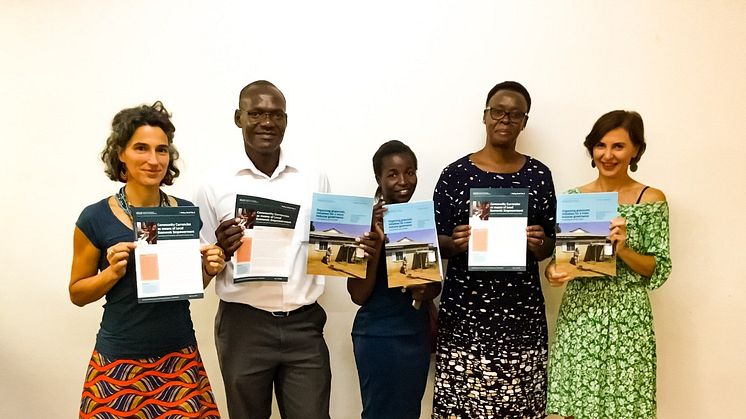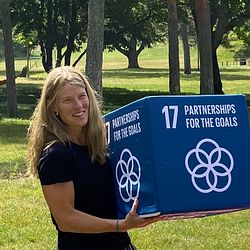
Blogginlägg -
Constructing the city from below: grassroots organisations as urban planning agents
Lead researcher of the ICLD-funded study ‘Organising grassroots initiatives for a more inclusive governance: constructing the city from below’, Maria Jose Zapata Campos, visited Kenya at the end of August 2019 to present the findings of the research. While there she also had the opportunity to present the report to the City Manager in Kisumu and officers at the County and discuss the findings with them. Below, is her short reflection on the research.
Beyond the apparent disorder and unruliness of urban slums, the creativity and entrepreneurship of their dwellers leave any first-time visitor with his mouth open. Millions of residents of informal settlements around the world – often deprived of formal services - literally build their cities from below: from the water they drink organised through community-based organisations (CBOs), to street vendors that sell food, boda boda motorbikes providing transport, to waste pickers groups that provide household waste collection. These services are usually organised collectively, either through resident associations, youth or women groups, networks of micro entrepreneurs, or other grassroots organisations.
But, how can these communities succeed to build up the necessary infrastructure to provide these critical services in a resource-scarce environment where their income hardly covers their livelihood costs? The answer was in front of our eyes, but we could not see it! Despite that we, for quite a long time, had been familiar with the grassroots organisations operating in Kisumu’s informal settlements, we discovered with surprise, how table banking groups (a form of collective savings used for loans and microcredits to members) had developed silently, floating loosely across the formal organisational charts of these organisations. For example, for the Manyatta Resident Association located in an informal settlement in Kisumu, the introduction of table banking allowed members to generate, in only a few months, their own funding for the initial investments necessary to start a new water meter and the constitution of a CBO to co-produce this service together with Kiwasco, the Kisumu Waste Management municipal company.
Table banks, we learned, constitute financial infrastructure permitting the survival of the grassroots organisations and enable the delivery of services such as water. Yet, despite their criticality, this financial infrastructure becomes invisible to the eye of the outsider such as researchers like us. A lesson worth learning also, for municipal officers and politicians who often oversee already existing local practices that can provide low-scale, resource-efficient and more sustainable solutions. Local governments, as we conclude in our report, can benefit significantly from working together with grassroots and the nebulous organisational landscape that they offer access to, just by gardening and watering these practices and make them bloom and diffuse.
Last week we had the opportunity to present the research report to the City Manager of Kisumu, as well to other officers of the County government. The City Manager reflected about how other grassroots networks as the Kisumu Waste Actors Network (Kiwan) could contribute to bridging the gap between the environmental governance of the city (the policy design) and the health situation of informal settlements and its residents (the policy implementation and practice). Only a few weeks earlier, the city dump had been formally closed, without previously designating new sites for disposal and recycling. Youth groups working at the dump and the informal settlements, as well as other small entrepreneurs, all members of Kiwan, are negatively affected by the closure of the dump. Accordingly, Kiwan has started to mobilise, protest and advocate to change this situation.
Paradoxically, the waste crisis in Kisumu has also served to render the usually invisible and mundane waste collection and recycling practices, suddenly visible and crucial for the implementation of more sustainable waste management policies in the city. From this, Kiwan and the City continue to discuss the co-production of new recovery centres in the informal settlements where they operate, as well as the diffusion of grassroots waste-to-energy innovations such as small-scale biogas production, or the introduction of community tokens to incentivise waste separation at household level.
Grassroots organisations such as Kiwan, resident associations or the water CBOs we have studied in this research can act together, despite, or against the local government, depending on the context. In all circumstances, by literally constructing the city from below, grassroots organisations and their innovations can become powerful policy and urban planning agents, making cities and their governance more sustainable and inclusive.
/Maria José Zapata Campos, Gothenburg Research Institute, University of Gothenburg. mj.zapata@handels.gu.se

